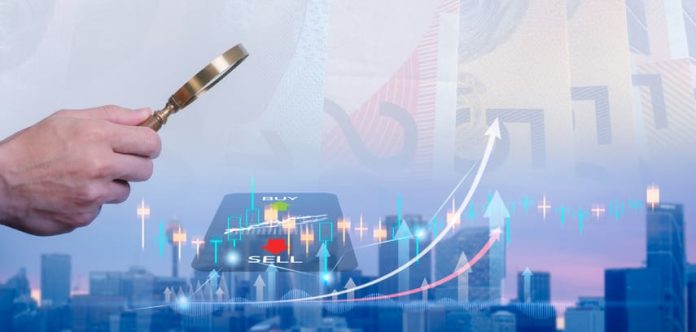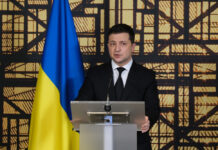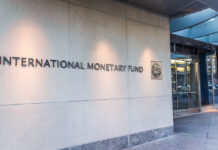By Matt Ince
Growing numbers of multi-nationals are drawing on geopolitical analysis to better navigate an increasingly volatile and unpredictable global security landscape. Yet there is a risk of being overwhelmed by analysis that may or may not be directly relevant to their business operations and strategies – potentially leading to ‘analysis paralysis’.
Big picture overviews and background information are important to get a general sense of trends and developments globally. Yet key insights need to be distilled into actionable intelligence assessments to enable companies to better anticipate and take steps to mitigate threats to their activities worldwide.
Such assessments aim to empower corporate leaders with sufficient understanding and forewarning to make better-informed and timely decisions that put them ahead of the most pertinent operational and strategic risks they face. Analysis provides context and background but can leave senior executives searching for direction. Actionable intelligence is tailored to their immediate needs, significantly enhancing the decision-making. So, what it is it that makes intelligence assessments actionable.
Defining characteristics
First and foremost, intelligence assessments are about being relevant, directly informing the decisions a company needs. They do so by setting out the implications of a particular geopolitical development for its corporate strategy, global assets and supply chains. Assessments are concise, delivered in short-form formats that use key judgements, and ultimately provide readers with time advantage by answering the “so what?” question up front. They are also precise, using probabilistic language and consistent phraseology to covey the relative likelihood and impact of a particular event. This helps decision-makers to ‘rack and stack’ different risks and identify the ones that are the most pressing to them.
Assessments are forward-looking, so the emphasis is on anticipatory analysis as opposed to looking backwards. And relatedly, they will tend to incorporate scenario analysis – different, plausible pictures of what the future may look like, allowing corporate leaders to plan for the most likely and worst-case scenarios. That gives them greater confidence to act in a timely manner and not lose advantage by being overwhelmed by the potential vastness of geopolitical analysis.
The use of indicators or warning signs – identifying tangible, measurable developments for readers to look out for – help to determine whether a given forecast or scenario is becoming more or less likely. For instance, if a company was worried about a short-term crisis breaking out on the Korean peninsula, then an indicator that it was likely would include North Korea conducting provocative intercontinental ballistic missile tests. Such markers effectively provide a structure that can be followed to enable better anticipation of situations.
Accountability is key
Lastly, what strengthens the credibility of assessments is their accountability. What that means in practice is that they are very transparent about the basis on which they have been formulated – so, for example, they will highlight knowledge gaps or limitations in current understanding around a particular topic or issue. They also surface details about the sources of information upon which any load-bearing assumption are based. In other words, they communicate the levels of confidence that those producing them have in the quality of the evidence base used to put them together.
So, while geopolitical analysis clearly has its place in putting forward an opinion or position on a development or trend, intelligence assessments have gone through a process that is more robust by design, structured and supported by methodology. It, thus, equips decision-makers with what they need to know to ensure their organisations are best prepared for security crises – in essence, giving them the tools to make strategic, operational and tactical decisions to mitigate or avoid the impact of such risks and threats.
Actionable intelligence in action
During the early stages of the Covid pandemic, actionable intelligence focused on providing strategic early warning would have given companies a better understanding about how the Corona virus was most likely to spread. As well as the potential for geopolitical fallout and which countries would be more vulnerable. There were a lot of false assumptions about countries in the Global South being generally less resilient and more exposed, whereas, in reality, it was economically-interconnected countries that ended up having bigger problems. Operational intelligence would have facilitated mitigations to ensure there was sufficient PPE available, avoiding the shortages resulting from supply chain hold-ups. Tactical assessments are likely to have assisted with workarounds required to address pandemic-driven disruptions, such as provision for people to work from home.
As the consequences of climate change becomeing more disruptive, strategic intelligence assessments can determine the extent to which global warming’s cascading impacts can interrupt global supply chains and fuel resource-based conflicts. From an operational perspective, assessments would address business continuity: the safety of physical assets, staff and infrastructure. On a more tactical level, it would be thinking, for instance, about whether equipment in place in climate-vulnerable operational areas has been built to withstand extreme heat.
In the case of the Israel-Gaza war, strategic thinking involves looking at pathways for how the conflict could plausibly escalate, either intensifying dramatically between the protagonists or developing into a regional war. It also involves considering the consequences of these alternative futures – such as further Houthi disruption of shipping through the Suez Canal or an intensifying exchange of rocket fire between Israel and Hezbollah – and what these would mean for the wider business and security environment.
In relation to the latter scenario, operational intelligence assessment could seek to determine the range of the rockets Hezbollah is likely to launch and the areas in Israel that will be impacted. Or to provide an assessment of weapons stockpiles levels to be able to estimate how long they would be able to sustain barrages. Tactical consideration would centre on the logistical challenges in the event of such an escalation, including advice on which airports are likely to remain open and which roads would be best to use to evacuate staff from their offices.
Who consumes what
For senior decision-makers, strategic intelligence assessments, together with the actionable insights they provide, are critical to ensuring that their business strategies, and the implementation of those strategies, are attuned and responsive to global security and geopolitical events. And while business leaders should be across actionable operational and tactical intelligence, these need to be primarily informing senior managers across an organisation, helping them to practically deal with immediate challenges.
As the emerging multi-polar world generates new and more frequent geopolitical risks and threats, multi-nationals are rightly investing in the analytical capacities that will help them become more alert to developments that could undermine their competitiveness. But being aware is one thing, being prepared is quite another. And it’s here that actionable intelligence comes into its own, giving corporate leaders exactly what they need to make decisions that protect their operations and their bottom line.
About the Author

Matt Ince is an associate director at Dragonfly, a geopolitical and security intelligence firm, where he leads on strategic intelligence. Prior to joining Dragonfly in January 2023, Matt spent a decade working within the UK’s national security community, including leading analysis on emerging global risks and strategy development on the security implications of climate change. He is an Associate Fellow at the Royal United Services Institute (RUSI), the UK’s leading, defence and security think tank, and a Research Associate at the University of Oxford’s Climate Change and (In)security Project.




































































